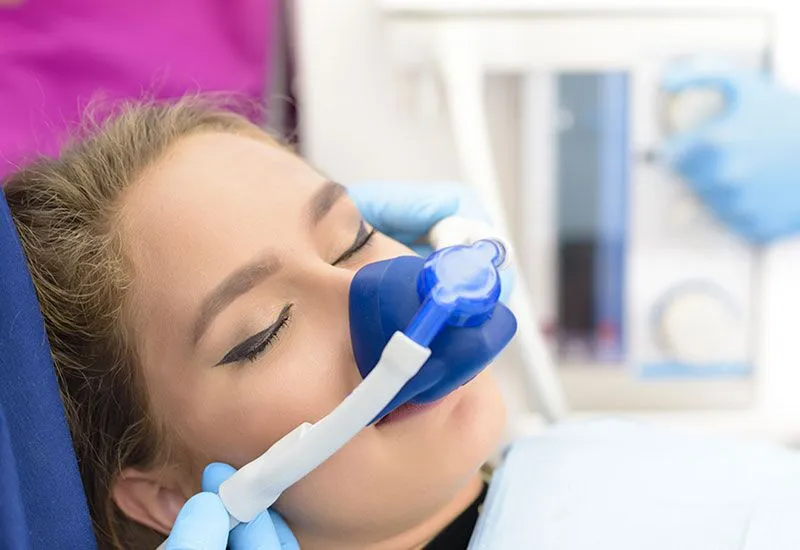IV Sedation
What you should know about IV sedation.
Your visit to the dentist’s office should be easy. But for some people, visiting the dentist causes anxiety and dread. Some may have heard of IV sedation in dentistry and how it can help relieve stress and discomfort in dental procedures. Give us a call to find out how we can help you get out of pain without fear or anxiety.
What is IV sedation in Dentistry?
IV sedation, also known as conscious sedation, is a drug administered with a needle into a vein to manage discomfort and anxiety during medical or dental procedures. Contrary to popular opinion, most IV sedation keeps you awake. You tend to be less aware of every step of the process and feel a little loopy. Other forms of sedation include medicine you inhale (like nitrous oxide) or sedatives taken in a pill. Our dentist will work with you to decide which type of sedation may be the best fit.

Preparing for IV sedation.
IV sedation requires more preparation on your part than other types of conscious sedation. Prior to arriving at our office for IV sedation, patients should:
Wear loose fitting clothing that is comfortable.
Remove jewelry and nail polish.
Avoid eating or drinking 6-8 hours prior to the dental procedure.
Avoid taking any medication prior to the procedure (unless approved by your dentist).
Alert your dentist any significant changes in medical history.
Bring an escort with you to our office.
During your dental procedure.
After arriving at our office, staff will start an IV for the patient. The IV is typically started in a person’s hand or arm. The majority of medications will be administered through this IV and pushed into the patient’s bloodstream during the procedure. Typical medications include sedatives, pain medicine, anti inflammatories and/or steroids.
Through IV sedation, our patients enjoy a highly relaxed state free from any pain or discomfort. It is important to note that a patient goes through multiple levels of sedation before he/she is fully conscious. Because of this fact, your dentist is aware of any discomfort the patient experiences prior to the patient becoming aware of it, and the dentist can increase or decrease the amount of sedation medication and/or local anesthetic throughout the dental procedure to ensure the patient’s maximum comfort.

Contact Us Today
to schedule an initial consultation & exam.
Your consultation will include an examination of everything from your teeth, gums and soft tissues to the shape and condition of your bite. Generally, we want to see how your whole mouth looks and functions. Before we plan your treatment we want to know everything about the health and aesthetic of your smile, and, most importantly, what you want to achieve so we can help you get there.
